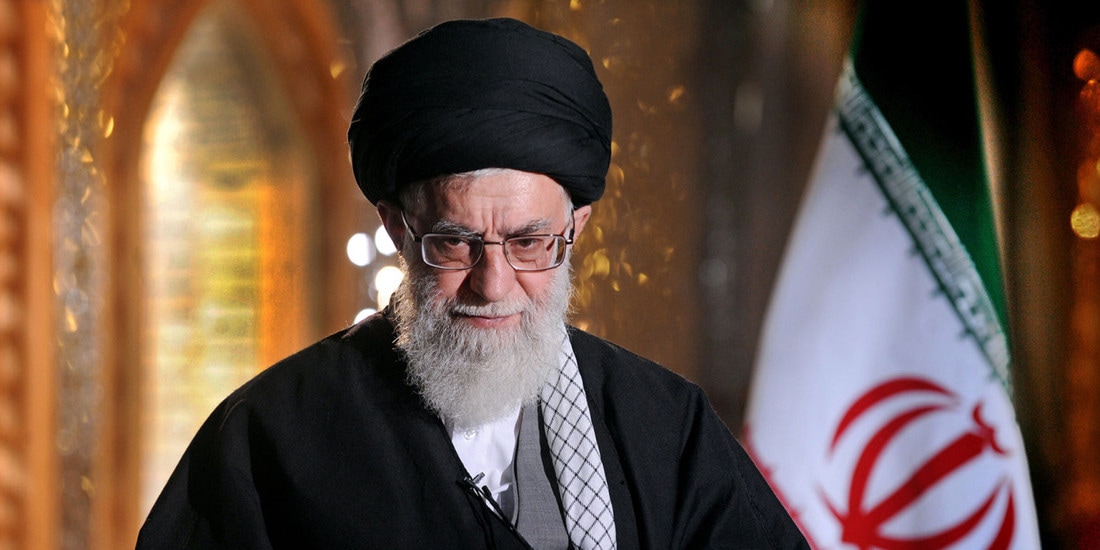Tehran not only has a strong grip on Iraqi politics but also on the country’s local markets. Since 2013, bilateral trade appears to be more in Iran’s favour.
While many welcome Iran’s strategic alignment with Iraq, their budding romance, as subsequent years show, lacks reciprocity. Endemic corruption and an unregulated investment climate in Iraq have empowered Iran to become Iraq’s most dominant trade partner.
As a first step towards expanding commercial interests, in 2004 Iran established a free trade zone in Khuzestan, straddling the Iranian-Iraqi border. The frontier was the site of confrontation during the 1980s Iran-Iraq war but now offers a lifeline through which Iran is reviving its economy.
Eight years on, Iran still has the advantage.
In a report published last June, the Carnegie Endowment for International Peace reported that trade between Iraq and Iran was $12 billion in 2015. The report predicted bilateral trade could reach $25 billion in subsequent years.
The flood of cheap, low-quality Iranian consumer goods into the country has been crippling for many of Iraq’s small businesses.
A factory worker in Basra bemoaned that local Iraqi industries were not protected. Tariffs on imports have been removed to maximise gains for countries, including Iran,” he said in a telephone interview.
The government’s inability to rebuild bombed factories has made matters worse.
Abu Ghraib’s dairy factory, famed for producing unrivalled Iraqi-style clotted cream called Gaymar, is on its last breath. A member of the family-run business said the factory’s expenditures were three times income. Factories such as the dairy in Abu Ghraib sell only Iraqi products despite it being more profitable to deal in outsourced goods.
Baghdad resident Nabil Salih said Iranian cars litter the streets of the Iraqi capital. “The most known is Saipa, recognisable by its yellow colour, and possibly the worst car ever made,” he said. “Then you have Iranian-made Peugeot and plenty more”.
London-based analyst Ahmad Mahmoud said: “In contributing to the destruction of state-owned factories and the local economy, a key contradiction emerges in the narrative Iran uses to justify its imperial adventures in Iraq.”
While Iran frequently cites the protection of Iraq’s Shia population, religion appears to be little more than a cloak to keep its financial transactions under wraps.
“It is no coincidence that many of Iraq’s new millions are linked to Iran-allied Shia religious parties”, he said. “The same parties distribute construction permits and manage the pilgrimage business in Iraq’s southern provinces”.
Former Trade minister Abd al-Falah al-Sudani was apprehended at Baghdad airport in 2009 after allegations of fraud in the purchase of imported Iranian food became public. While charges of financial corruption against al-Sudani were not dropped, he fled to Wembley, London, where he currently resides.
Iran similarly uses provinces such as Diyala as an open arena for smuggling arms, trading drugs and trafficking, analysts said. The province, as former governor Omar al-Humairi has said, borrows millions in electricity and other services from its neighbour. The porous border also permits Iran to funnel fighters that join Iraq’s Popular Mobilisation Forces.
Iran’s security and military cooperation with Iraq offers only a thin veil of its strategy of economic dominance. Its economic overreach is not enriching Iraq’s economy but is weakening any potential for regrowth. The optimism felt since Iran stepped up to the role of protector in Iraq, has soured as Iraq’s dependence exposes a darker side of Iran’s hegemonic might.
Source www.thearabweekly.com//?id=7910


 RSS Feed
RSS Feed